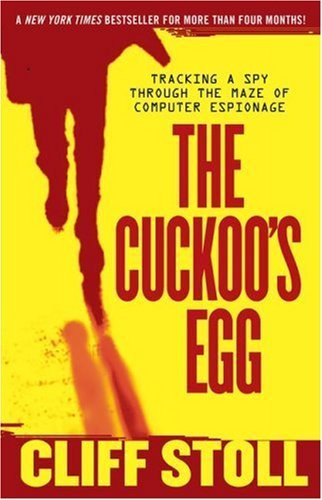As a cybersecurity professional, The Cuckoo’s Egg has been on my “to-read” list for many years. I was first introduced to eccentric Cliff Stoll from the Numberphile YouTube channel many years ago, and eventually bought a Klein Bottle from him as well (which I love). Needless to say, I wasn’t sure what to expect from a nonfiction narrative computer spy novel by the same man— published back in 1989!
The Cuckoo’s Egg was just a really, really slow burn. The premise is genuinely exciting— one of the first recorded computer hacking incidents? Military intrusions? Early Unix security? Political implications? But truthfully, the plot develops like any other government project— painstakingly slow, with innumerable red tape and boundaries along the way. Considering the amount of government involvement in this case as Cliff tells it, I shouldn’t have been surprised.
Most of what I did find interesting about this book is related to the fact that it was published in 1989. I’ve been in cybersecurity for many years, but I am not a “seasoned veteran” like the hackers who started back then. It’s interesting to see how regular computer users and administrators from the 80’s reacted to the cyber attack. Nowadays, cybersecurity is blossoming into a large industry, and every tech company is slowly learning the painful lessons of missing backups, default passwords, and dictionary attacks. But for users in the 80s, this was foreign territory. It’s funny how many of the system administrator’s lax security attitudes (“don’t worry, we locked it down, it’s secure, nobody could break in!”) can still be found today in companies of all sizes.
If you’re in the computer science field, you’ll probably find this book at least mildly interesting for the history it contains. I certainly did. But it was just that— mildly interesting.
